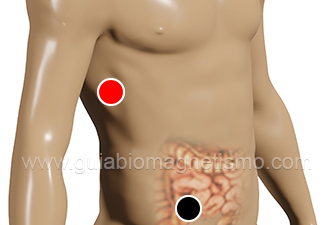Pleural effusion
Pairs
pleura - appendix
mediastinum - mediastinum
pericardium - pericardium

Generalities:
Accumulation of fluid in the pleura, which is the bag that surrounds and protects the lungs.
Causes:
Your body produces pleural fluid in small amounts to lubricate the surfaces of the pleura, the thin tissue that lines the chest cavity and surrounds the lungs. A pleural effusion is an abnormal and excessive accumulation of this fluid. There are two different types:
-
Transudative pleural effusions are caused regularly by congestive heart failure. The fluid that filters into the pleural space, which is caused by high blood pressure in the blood vessels or low protein content in the blood.
-
Exudative effusions are caused by blocked blood vessels or blocked lymphatic vessels, inflammation, lung injury, and tumors.
Symptoms:
- Chest pain, usually a sharp pain that gets worse with coughing or deep breathing
- Cough
- Fever
- Hiccup
- Fast breathing
- Dyspnea (difficulty breathing)

